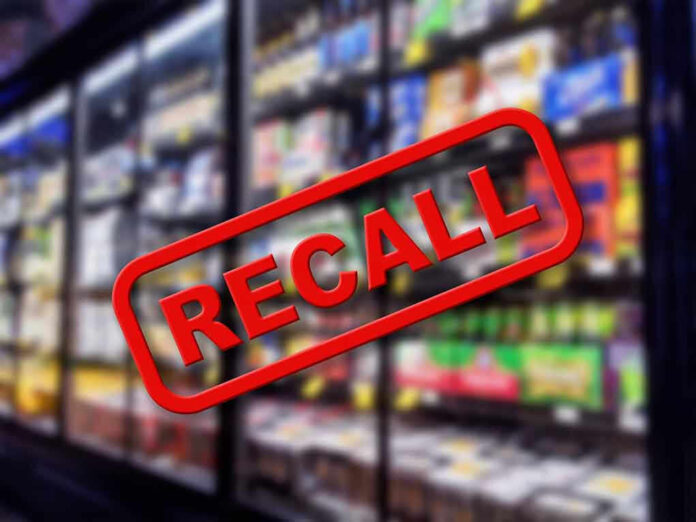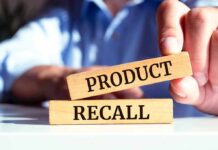When Americans can’t even trust a humble cucumber at their local flea market, you know the government’s priorities are completely upside down.
At a Glance
- FDA issues a Class I—highest risk—recall for Fuentes Farms cucumbers over Salmonella contamination.
- 71 boxes sold in McAllen and Alamo, Texas between May 31 and June 3, 2025 are affected.
- No illnesses reported yet, but the risk of serious health consequences or death is deemed real.
- The recall follows a string of similar incidents, exposing ongoing vulnerabilities in our food supply chain.
Another “Highest Risk” Food Recall: When Will They Learn?
Here we go again—another food recall, another episode of “How Safe Is Your Supper?” This time, it’s cucumbers from Fuentes Farms LLC in Texas, flagged by the FDA as a Class I recall—the highest possible risk to health. The government’s own definition of Class I: there’s a “reasonable probability” that eating these cucumbers could cause “serious adverse health consequences or death.” Let that sink in. Americans are being told to double-check their veggies for deadly bacteria—because oversight and common sense in the supply chain have been left to rot.
On June 13, 2025, Fuentes Farms voluntarily pulled 71 boxes of cucumbers distributed through flea markets in McAllen and Alamo, Texas, after the FDA detected Salmonella during routine testing. The agency’s public notice dropped on June 16. Production and distribution have stopped, and consumers are being told to toss or return any cucumbers from Lot #357 purchased in that narrow window. And while no illnesses have been reported yet, the FDA’s “better safe than sorry” approach would be a lot more reassuring if these recalls weren’t an annual tradition at this point.
A Pattern of Failure: Recalls Are Becoming Routine
This isn’t some black swan event. Just a month prior, Bedner Growers in Florida faced the same scrutiny for Salmonella-tainted cucumbers. These are not isolated incidents—they’re symptoms of a food safety system that’s become reactionary instead of proactive. Each time, the government swoops in after the fact, issues a stern warning, and expects consumers to clean up the mess—literally. The script reads the same: “Dispose of the product, sanitize your counters, and keep an eye out for symptoms.”
It’s hard not to notice the irony. With all the taxpayer dollars pouring into endless government programs, we can’t get a handle on basic food safety? The FDA’s response is always the same: more oversight, more testing, more bureaucracy. Yet the outbreaks keep coming. Maybe it’s time to question whether throwing money at the problem is solving anything—or just keeping more bureaucrats employed while families do the government’s job of policing their own kitchen counters.
Who Pays the Price? Local Communities and Family Businesses
While the FDA issues press releases and pats itself on the back for “swift action,” it’s the local vendors, small farms, and—most importantly—consumers who pay the price. Fuentes Farms has now ceased production and faces regulatory scrutiny, while vendors at the McAllen and Alamo flea markets are left pulling product off shelves and explaining to loyal customers why their livelihoods are once again at risk. For these small businesses, a single recall can mean the difference between staying afloat and shutting down for good.
Consumers—especially the most vulnerable, like young children and the elderly—are left anxious and frustrated, wondering if their government is more interested in virtue signaling than in doing the hard work of protecting its own citizens. Meanwhile, the big corporate players in the food industry, with armies of lobbyists and compliance officers, keep marching along, largely insulated from the consequences that devastate Main Street.
What’s Next? More Bureaucracy, Less Accountability
The FDA’s investigation is ongoing, and the call for stricter oversight is already echoing through the halls of government. But if history is any guide, these “solutions” will mean more paperwork, more hoops for small farmers and vendors, and still no guarantee that the next batch of cucumbers, tomatoes, or lettuce won’t be contaminated. The cycle repeats: a food scare, a recall, a round of headlines, and then business as usual until the next crisis.
Instead of doubling down on failed approaches, maybe it’s time for a return to common sense—real accountability in the supply chain, incentives for transparency, and a government that prioritizes the safety of its own citizens over the endless expansion of its own reach. Until then, don’t be surprised if the next recall comes sooner rather than later. Because when government grows, competence shrinks—and Americans are left to pay the price, one contaminated cucumber at a time.











